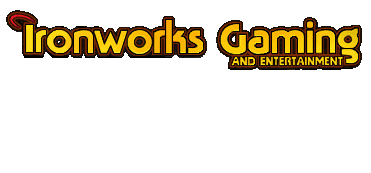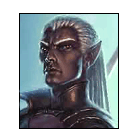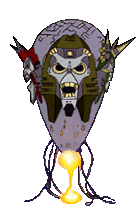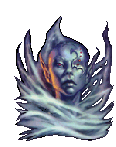 |
 |
 |
 |
 |
 |
 |
 |
 |
 |
 |
 |
![]()
 |
 05-02-2005, 01:51 AM
05-02-2005, 01:51 AM
|
#1 |
|
Lord Ao
Join Date: May 27, 2004
Location: Canada
Age: 42
Posts: 2,061
|
Here's something I've been mulling over for a while, for all the number-crunching whizzes out there. Tell me what you think. This may also be a valuable train of thought for those new to the game, although it could be overwhelming to non-veteran gamers.
*** They key to a successful party is good balance. Because of the different challenges during the game that may require different fighting strategies, it’s important to have at least a minimum capacity within a party to perform all key functions. I’ve separated the functions of a party into 6 "ability" categories: melee (M); ranged (R); offensive spellcasting (OSC); defensive spellcasting (DSC); healing (H); and thief skills (TS). Note - this analysis works equally well for IWD2, with the addition of a 7th category, dialogue skills. Assign a decimal value between 0 and 1.0 to each character in the party for each function, depending on the role you foresee for that character. The higher a value, the greater a character's ability to perform that function. I try not to assign any character a value of 1.0 for more than one function, with the exception of clerics, for defensive casting and healing. The higher the value, the higher a character’s potential in that function. However, the assigning of values is partly based on the role you wish the character to play. A 1.0 loosely signifies that the character will spend at least 60% of its significant actions performing this function, or alternately, that this character is the party's number one option for this function and there are no other options that fit the bill as well (say, a fighter using a longbow in a party of sling-using clerics and mages  ). Two fighters could have different function values assigned for the melee and ranged categories, if one specializes in ranged weapons and the other is a typical meat shield melee specialist for the party. Their potential is probably equal in the melee/ranged categories (perhaps aside from differences in Str, Dex, and Con stats), but their roles are different, so their function values are different (although the difference may only be .25). ). Two fighters could have different function values assigned for the melee and ranged categories, if one specializes in ranged weapons and the other is a typical meat shield melee specialist for the party. Their potential is probably equal in the melee/ranged categories (perhaps aside from differences in Str, Dex, and Con stats), but their roles are different, so their function values are different (although the difference may only be .25).Here’s a practical example: a fighter/cleric multiclass with specialization in maces and slings: M = .75 R = .5 OSC = .25 DSC = .75 H = .75 TS = 0 You will notice that the F/C doesn’t have a 1.0 in anything, which is reflective of the F/C’s multiplicity of functions within the party. It’s mostly a melee character, with a strong ranged option, limited offensive spell capability, with a strong emphasis on healing and defensive spellcasting. Thief skills are negligible. In a party smaller than six, or one without another "priest" option (cleric, druid, high level bard or paladin), I might increase the DSC and H values up to 1.0 for this character, to indicate its importance to the party that it perform those functions. However, in a six-character party that contains another priest option, a 1.0 value for healing might be a stretch. Once finished the function analysis for each character, add up the functions. In a six-character party, I would recommend bare minimum totals of at least: M = 2.5 R = 1.5 OSC = 2.0 DSC = 1.5 H = 1.5 TS = 1.0 These should be easily attainable. For best results, I would set a “preferred minimum” of at least .5 higher in every function. If using dual classed characters, think carefully about the effect that the dual classing will have on the party’s function at a particular time. If you have four fighters dualing to other classes at the same time, the party’s melee and ranged ability will be severely curtailed, and the new classes will not come close to fulfilling their potential until some XP has been earned. Someone who really wishes to extend this analysis could break the functions down into further subcategories: split the melee category into weapon types, split ranged into launcher type, split offensive casting into “pure” damage dealing, summons (also fits into the DSC and melee categories), offensive buffs (haste, strength, etc), and hindering spells, etc, etc. Further, some “thief” skills can be covered by other classes: a mage should get at least a .25 for Knock, Invisibility, and Mirror Image, and priestly casters get a mention for Detect Traps. Bards, of course, can pickpocket, and merit a .25 for that. All thieves should have a 1.0 in thief skills, even if multiclassed. Dual class is a little more tricky. Obviously, the subjectivity and variance of this analysis is in the values assigned to each character for each function. I like to work in quarters, as it makes for relatively easy adding. It's only a rough guide, after all. Further, the values assigned may vary depending on character levels. A dual-class fighter/mage will have no offensive spell casting ability at the start, but will likely merit a value of at least .75 in that category shortly after dualing over. A paladin may have a .25 in DSC and H to start, and finish with a .5 due to the addition of clerical spells to the paladin’s “starter” abilities in healing and defence. A bard will end up with about .5 in DSC and .75 in H, due to the bardic songs, particularly War Chant of the Sith (only merits a .75 instead of 1.0 because of the lack of Heal and Raise Dead/Resurrection). *** So tell me what you think. All opinions welcome. [img]smile.gif[/img]
__________________
Where there is a great deal of free speech, there is always a certain amount of foolish speech. - Winston S. Churchill |

|

|
 05-02-2005, 04:07 PM
05-02-2005, 04:07 PM
|
#2 |
|
Drow Warrior
 Join Date: January 12, 2005
Location: usa
Age: 56
Posts: 291
|
I think it's a decent idea, and a good way to look at character creation. However, I'd be concerned that it would be hard to use without a constraint on the sum of the values for each character. This means that your advice about sums for each value are difficult to apply without knowing how you subjectively choose to apply numbers to characters.
For instance one person may look at his or her paladin and say "good at melee, good at ranged, some healing, so I'll assign 1.0/1.0/0/0.75/0". Another person may look at the very same paladin and say "can't get more than 2 stars. Will be carrying a shield. Lay on hands not much healing, I'll assign 0.75/0.5/0/0.25/0" The first person will look at your recommendation and determine "need a secondary ranged, some more melee, and a little more healing", while the second will conclude "need a ranged character, tons more healing, and a fair amount more melee". In reality either may be right depending on what they're planning to do, but I don't think that the way each of these people assigned their numbers should necessarily lead to the conclusion he or she would reach. Maybe limit the total for each character to (say) a range of 2 to 3? Would presumably force me to rank my pure thief as .5/.5/0/0/0/1, which seems optimistic. But I suppose that to carry his or her weight a pure class thief better get in some backstabs and be vaguely useful with a bow.
__________________
\" Let every nation know, whether it wishes us well or ill, that we shall pay any price, bear any burden, meet any hardship, support any friend, oppose any foe, in order to assure the survival and the success of liberty.\"<br />JFK |

|

|
 05-02-2005, 06:08 PM
05-02-2005, 06:08 PM
|
#3 |
|
Quintesson
 Join Date: February 5, 2002
Location: Huntsville, AL, USA
Age: 63
Posts: 1,045
|
Aerich,
Excellent thoughts. This would be a neat metric to figure out just how powerful and balanced a party was. (Are you sure you want to go into law? You might be repressing an engineering drive: and that's not healthy!) I'd like to pursue this, but don't have the time, today. Meanwhile, several thoughts struck me. Here's my two cents worth: 1.) To be really useful, the metric should accurately reflect how easily a given party could advance through the game. 2.) The total of the weights, per character, should not be constrained; but each weight for each ability should be pro-rated against the ideal for a character rolled and developed to get the best possible score in that ability. 3.) I wouldn't constrain the scoring based on how much time a PC spends with the skill. For example: A situation might come when you need lots of Cleric power. The fact that your Fighter/Cleric spends most of his time bashing skulls and not using his excellent spells has no effect on his utility in the situation where he can lend a healing hand. 4.) The abilities should be compared for *PARTIES* of characters with the same total PARTY expo, since this, negating the effects of camping, roughly represents how far a party has advanced in the game and therefore how tough their opposition is). Perhaps, in keeping with the system you introduced, assigning a "1.0" to the ability level of a character in a 6-character party who is sacrificing all to perfect that trait. Thus, each character in a 4-PC party with the same total expo (i.e., the party has advanced to the same point in the game), will have 150% of the EXPO of the 6-PC party character. This might well mean that a member of the 4-PC party would have an ability score greater than 1.0. Thanks for the invitation to engage in armchair number crunching. -------------------- What's a party, without a song? Bards ROCK! Party On!! |

|

|
 05-04-2005, 05:01 AM
05-04-2005, 05:01 AM
|
#4 |
|
Lord Ao
Join Date: May 27, 2004
Location: Canada
Age: 42
Posts: 2,061
|
Thanks for the responses, guys. I figured this would make a decent discussion point.
@ ister: Re: constraints on value and subjective application. I agree, it can be a problem. I haven't constrained the value of a character in terms of a number or a range of numbers. Simply speaking, some characters will have a greater range or just be more effective than others. For example, there is no question that a dual or multiclass thief/mage will become more versatile, valuable, and powerful than a straight thief. As such, I find it difficult to put a maximum overall value on a character. Even with the same character, said character may be more valuable or take on different roles in different parties. A fighter/cleric will have more value in a party of mages than it would in a party with surplus melee and healing capabilities. As for the difference in subjective application of numbers by different people, it doesn't really matter to me what values people assign, as long as they apply the values consistently between their own characters and parties. This party valuation method was primarily designed for, and is most valuable for, roughly figuring out what the strengths and weaknesses of a party are. Moreover, the valuation of functions helps one to discern how the party will stack up to various challenges and if it may need to be changed to fit how the player wishes to play (eg. melee-heavy, stealth, spellcasters, etc). Further, the assigning of roles to party members is something we do all the time, and this numerical analysis is simply another tool to rationalize party creation. However, in the example you gave, I would never give a 1.0/1.0 to a paladin in melee/ranged. The valuation IS rather subjective, but the main criteria I use to determine what valuation a character receives are (in no particular order): 1) Potential to be effective in the function - obviously, a paladin will never be as good of a thief as a thief, because of the nature of the class and its class-specific abilities (or inabilities). Likewise, a thief will never be as good with a melee or ranged weapon, because of Thac0 progression, weapon specialization, and (possibly) strength bonuses. Assuming relatively equal levels, of course. 2) How I (or whatever other player) intend to use the character - there is some fluctuation in this as the game progresses, of course, and on a micro level, could change between every fight. It may also be different for the same character in different parties. A paladin with a longbow might get a 1.0 for ranged weapons in a party where no other character has the ability to use longbows, for example. Or, as is the case in my current party, the shield-bearing paladin is the primary melee option who never uses a longbow because the player is too lazy to switch back and forth in the inventory screen between shield and bow all the time. If I want my cleric to use all of its 5th level spell slots on Raise Dead instead of Flame Strike, that will reduce the cleric's value as an offensive spellcaster in favour of healing abilities (generally categorizing the raising-resurrection spells as healing). So essentially, the numbers one assigns come down to capability and use. This is a rough method of estimation, but it is surprisingly effective at figuring out the strength of a party's various functions, at least relative to the other functions of the party. Try it and see on one of your existing parties. @ NobleNick I should state that I have not complicated this analysis by making determinations of power, except to provide the warning about dual classes and various stages of the game. I figure that as long as the ingredients (eg. sufficient party capacity in a given function) are there, the power will be there as well. That comes down to decisions of positional and magical tactics, which are situation-specific and don't really come down to numbers. I will admit that capacity is generally more important than the amount of time the character performs a certain function, but it makes sense to take into account the amount of time a character performs a function, or alternately, how vital that function is when the character needs to perform it. A character specialized in longbows is useless for ranged purposes if it never uses that capability. Therefore, there has to be some consideration of how often, or in what situations a character will perform a function. Perhaps it is better to look at it in terms of importance, rather than time. A Heal spell, well-timed Fireball, or well-placed Web may be the most significant action that a character performs in a given fight, even if the fight lasts significantly longer than the one round it takes to cast that spell. In that sense, it makes more sense for the cleric or mage to get a 1.0 in healing or offensive spellcasting than to get a 1.0 in the piddly sling it uses the rest of the time. Bear in mind that this categorization is and never was intended to be a perfect numerical model of how a party will function. It is merely a device to provide a (somewhat) rationalized method of determining how well a party may perform at certain things. One of the ways to get around the 'inaccuracies' of a number assigned to a character would be to assign a "more specific" number, e.g., numbers in increments of 0.1 instead of 0.25. However, the pitfall in that is that it still will not be accurate, as the function of a character is more fluid, often changing from fight to fight. My Power Party currently in TotL has a bard and five warriors - given the short duration of protective spells, the amount of damage the party takes and the slow rate of healing by War Chant, I generally switch around my warriors so that they all take turns tanking. The rest cast spells or shoot missiles, depending on the situation and their own capacities. Therefore, it makes no sense to "pigeonhole" any member of the party (with the possible exception of the bard and the paladin) so closely. Striving for numerical accuracy and striving to make a party conform to that numerical designation will ultimately limit, consciously or unconsciously, the ability of one's characters to take on different roles according to necessity or whimsy. This is by no means a foolproof method, and innovative (or patient) characters can and will get around the limitations of any given party - for example the lack of thief skills in Dragon's Eye, as in Soothsayer's recent party, or the lack of dedicated melee skills, as in my (currently mothballed) priest-heavy party. Good strategy is more important than good numbers.  I'm still welcoming any modifications, proposals for refinement, or general comments.
__________________
Where there is a great deal of free speech, there is always a certain amount of foolish speech. - Winston S. Churchill |

|

|
 05-18-2005, 02:27 PM
05-18-2005, 02:27 PM
|
#5 |
|
Dungeon Master
Join Date: October 20, 2004
Location: Derbyshire, UK
Age: 35
Posts: 71
|
Being able to adequately program C++, I was going to propose writing a program that helped in party generation, after reading your post.
I then thought, do I really want to be known as the guy that was THAT sad? Hmmm, perhaps...but then agian, maybe this isnt worth programming, the maths isnt too mind-buggering.
__________________
[img]\"http://www.team-ind.co.uk/linked/sig.jpg\" alt=\" - \" /><br /><br />Deum Solum Timemus |

|

|
 05-31-2005, 10:58 PM
05-31-2005, 10:58 PM
|
#6 |
|
Lord Ao
Join Date: May 15, 2005
Posts: 2,092
|
Thats a great idea, about the party system, I mean.
With theif skills, shouldn't you cut it in two? I have two thieves in my party. a regular thief, and a mage/thief. my mage/thief focuses on Picking pockets, finding traps, and picking locks. my other thief focuses on Stealth only, and is our prime backstabber. I guess you could have them both in 1 group, but I think it might be better to have two. Either way, great all the same. |

|

|
 06-01-2005, 06:58 PM
06-01-2005, 06:58 PM
|
#7 |
|
Drow Priestess
 Join Date: March 13, 2001
Location: a hidden sanctorum high above the metroplex
Age: 54
Posts: 4,037
|
For thieves, there are many items in the game that grant bonuses to stealth, so you can allocate no points towards that skill and still be a decent sneak. For the other skills, even a lower-level thief of 5th level can have amazing skill levels with only one or two potions quaffed. [img]graemlins/beigesmilewinkgrin.gif[/img]
Don't over-complicate party or character creation. It's a game; thus, it is meant to be fun. [img]graemlins/petard.gif[/img] Create a halfling fighter/thief with a charisma of 3 and specialized in short swords and bows--he's short, ugly, and no fun at parties but otherwise quite dangerous. [img]graemlins/saywhat.gif[/img]
__________________
Everything may be explained by a conspiracy theory. All conspiracy theories are true. No matter how thinly you slice it, it's still bologna. |

|

|
 |
| Currently Active Users Viewing This Thread: 1 (0 members and 1 guests) | |
| Thread Tools | Search this Thread |
|
|
 Similar Threads
Similar Threads
|
||||
| Thread | Thread Starter | Forum | Replies | Last Post |
| What Next ?? Help With Party Creation | LennonCook | Baldurs Gate II: Shadows of Amn & Throne of Bhaal | 11 | 04-21-2003 02:01 PM |
| Party Creation... | Dreamer128 | Baldurs Gate II: Shadows of Amn & Throne of Bhaal | 6 | 03-31-2003 02:58 PM |
| Character Creation Guide | Lanthir | Neverwinter Nights 1 & 2 Also SoU & HotU Forum | 0 | 05-18-2002 02:19 AM |
| In-Depth Creature Editing/Creation guide is done! All u TOBers check it for after TOB | Vaskez | Baldurs Gate II: Shadows of Amn & Throne of Bhaal | 0 | 06-25-2001 08:13 PM |
| party creation | Sebastian_Kell | Baldurs Gate II Archives | 1 | 12-05-2000 01:54 AM |